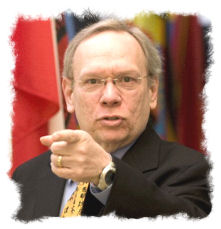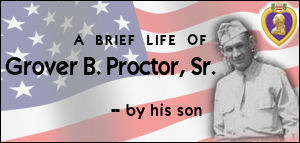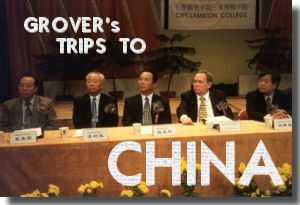|
By some counts, over 2,000 books have been written about the assassination of President John F. Kennedy, representing a wide assortment of perspectives on the question "Who killed JFK?" This year's thirtieth anniversary of the tragedy in Dallas on November 22 has brought with it at least eleven new books and two new videos to add to the shelves. The highest-profile book of the season (from excerpts in U.S. News and World Report to the author huckstering it on the QVC cable shopping network) is Gerald Posner's Case Closed (Random House). In it, Posner claims effectively and finally to establish the sole guilt of Lee Oswald as the president's murderer, putting to rest the issues, doubts, and controversies raised by those authors who have over the years claimed otherwise. Meeting with universal acclaim from those in the media who have all along professed allegiance to the Warren Commission's "lone nut" findings, the book certainly excels in being thorough, clearly written, well edited, and exhaustively footnoted and indexed. Intelligent, factual challenges to his methods and conclusions are already beginning to emerge, so it remains to be seen whether Posner can truly lay claim to having closed the case for the American people. Journalist and Congressional investigator Gaeton Fonzi, who played a key role in two of the government's re-openings of the case in the 1970's, is dismissed by Posner as a mere "assassination buff." But Fonzi's new and long-awaited book The Last Investigation (Thunder's Mouth) is the memoir and analysis of a seasoned veteran who has waded through America's seamy intelligence and covert operations underworld and has emerged with a journalist's story to tell. He weaves a fascinating and thoroughly compelling personal story of the sometimes explosive information and vital witnesses he uncovered while working on the JFK probes of the Senate Select Intelligence and House Select Assassinations Committees. The duplicity and deceit he found in Washington, particularly with the House investigation, are enough to give pause to anyone who still maintains a naive Civics 101 view of politics. Robert Groden is widely accepted as the premier authority on and conservator of the photographic documentation of the JFK murder, even if some question his acquisition methods. He has compiled much of the still frame evidence into a coffee-table-size book called The Killing of a President (Viking Studio), which simply must be seen to be believed. In addition to photo essays on all of the key players and controversies, Groden devotes considerable attention to the autopsy and other forensic evidence, claiming evidence of forgery in the photographic and x-ray records. This theme is further explored in Groden's new video, JFK: The Case for Conspiracy (New Frontier Video), a superb compilation of film, still frames, contemporary eye-witness testimony, and recent interviews. Another video, Beyond JFK (Globalvision), is an attempt to document the effect Oliver Stone's movie JFK has had, and to demonstrate the credibility of his conclusions through primary evidence. University of California Professor Peter Dale Scott's Deep Politics and the Death of JFK (Univ. of Calif.) is a scholarly, dispassionate attempt to place the assassination in its historical, geo-political, and politico-economic context. He argues convincingly for the need for a new paradigm he calls Deep Politics to explain America's inner-workings and political infrastructure from the close of World War II to the present. Not for everyone, the book is deeply disturbing in its quiet authority in presenting a theoretical model which shows one doesn't need a lone nut to make sense of the JFK assassination. Without question, this fall's biggest disappointment had been one of this season's most highly-anticipated books, Cause of Death (Dutton) by renowned pathologist Dr. Cyril Wecht. Long an outspoken and eloquent critic of the JFK autopsy procedures and report, Wecht is one of the country's foremost forensic pathologists and is therefore uniquely positioned to offer the objective, reasoned, and scientific analysis needed. Instead, what is actually found in his book is a series of unsatisfying personal speculations and collected anecdotes on the deaths of John and Bobby Kennedy, Elvis, Mary Jo Kopechne, Dr. Tarnower, and other popularly lurid cases. Harrison Edward Livingstone's Killing the Truth (Carroll & Graf) is an uneven and poorly edited polemic against the lone-nut theory, many of the pro-conspiracy theorists, the AMA, and at least seven (dead) individuals he claims were the authors of the conspiracy, including Vice President Lyndon Johnson. The book quotes from and uses the work of Saginaw researcher and archivist extraordinaire Martin Shackelford, of whom Livingstone says, "although we disagree on some points, [he] is one of the most valuable of all researchers into the assassination." John H. Davis has weighed in with another of his books touting the Mafia-did-it theory, The Kennedy Contract (Harper), and British author Matthew Smith tries on several possibilities before he declares the CIA most likely culpable in JFK: The Second Plot (Mainstream). JFK: Breaking the Silence (Taylor) is Bill Sloan's third book on the assassination, and in it he recounts the stories of twelve people intimately involved with the President's murder. Among them are Ed Hoffman, the deaf and mute man who witnessed the assassination from behind the Grassy Knoll's picket fence; CIA agent Hugh Huggins, who claims to have been ordered (minutes after the shooting) by Attorney General Bobby Kennedy to go Dallas to investigate; and Dallas Police Chief Jesse Curry, whose post-assassination feud with FBI Chief J. Edgar Hoover ruined his career. Among those on the shadowy fringe of the assassination now coming forward to write their own books is Marita Lorenz, whose short volume Marita (Thunder's Mouth) purports to tell "one woman's extraordinary tale of love and espionage from Castro to Kennedy." To call Lorenz controversial is brilliant understatement. She claims to have ridden with future Watergater Frank Sturgis in the car that delivered the assassination guns to Dallas, where they were met by paymaster E. Howard Hunt. While Mark Lane relied on her heavily in his book Plausible Denial, her further claim that Frank Sturgis tried to kill her in the 1970's is rebutted rather effectively by Gaeton Fonzi in his current volume. Bob Callahan's Who Shot JFK? (Fireside) is a light weight compendium of vignettes designed to guide the uninitiated through the maze of conspiracy theories. Graphically enhanced by pen-and-ink drawings by Mark Zingarelli, it skims the surface with barest detail, mostly accurate.
|
|
| PAGES & SITES OF INTEREST TO VISIT | |
| THESE ARE NOT PAID ADS. WE JUST SUGGEST YOU WILL LIKE THE SITES. | |
|
RETURN TO TOP |
| All content ©1995-2013. All rights reserved. |






